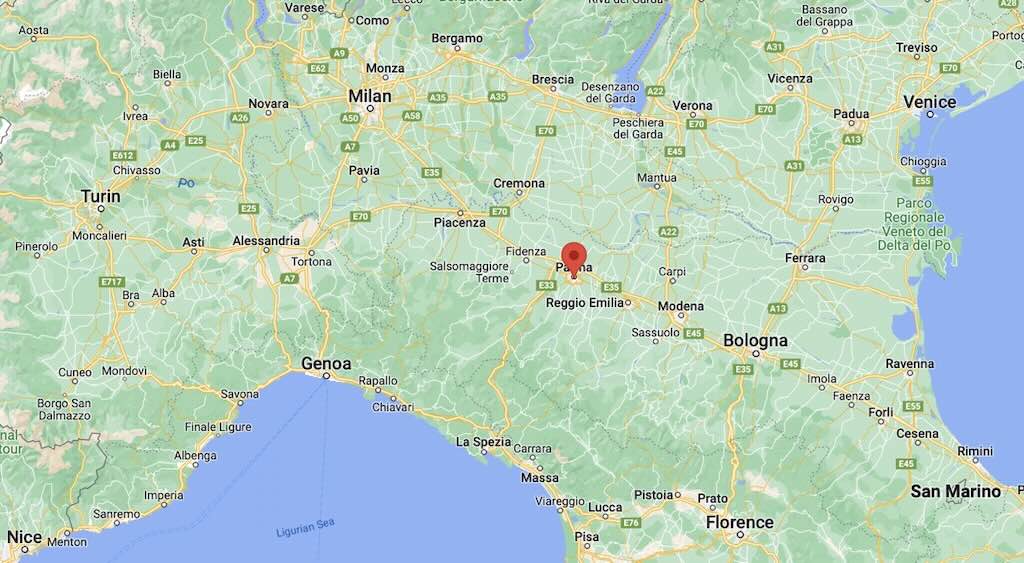Most people have a very fluid idea about what lies between wit and insult, although most people are far more proficient at the latter.
I am certainly more on the satire side than on the side of intellectual wordplay, but I have over the years accumulated a small collection of books of humorous quotes, etc. When I bought them I would mark in green the quotes I found funny. Then 10-15 years later I would, for no particular reason, go through them again marking in blue the ones I (still) found funny. Now 10-15 years later I am again going through them marking in red the ones I (still) find funny.
It’s interesting that very often those coloured marks don’t overlap. But why?
One thing is sure, I find less than 10% of what’s in those collections, funny.
Over time, I have an increasing difficulty in “seeing” the humour in wordplays, and often I’m not prepared to spend time hunting for the hidden barb.
Yet, I increasingly like humour that “draws blood”.
I now define myself as a satirically cynical. I enjoy those who expose pretension, hypocrisy, and corruption, often with humour that cuts deep. And as a good cynic I have a natural disdain for those who promote false values. So all power to Ricky Gervais, John Oliver, Charlie Brooker, Chris Morris, et.al.
Today I’m at a crossroads, do I go down the route of satirical cynicism (contempt to the fore), or what about cynical satire (satire first with a cynical sting).
Yet I don’t want to miss the sheer nonsense of The Goons, Eric & Ernie, Peter Cook & Dudley Moore, Monte Python, Dave Allen, Billy Connolly, etc.
Perhaps the key is my distrust of normality. And not forgetting my distrust of politicians, celebrities, billionaires, estate agents, cheese sculptors, and anyone who practices competitive extreme ironing.
Wordplay & Verbal Spark
Laughter that grazes the skin — quick, clever, leaving a fleeting mark.
Generally a form of light, clever humour where the pleasure comes from the play of language itself. Wit should entertain the reader with elegance, sparkle, and linguistic ingenuity.
Wit is a concise, sharp cleverness in phrasing that surprises by its neatness. Wit sparkles more than it wounds. It’s primarily about surprise and elegance, though it can sometimes carry a gentle barb. For example, Oscar Wilde’s “I can resist everything except temptation”.
Epigram is a short, polished remark or verse that distills an idea into a memorable twist. Epigrams must be memorable. They can be uplifting, moralising, or satirical. The sting, if any, is secondary to the twist. For example, Alexander Pope’s “To err is human, to forgive divine”.
Puns (or Paronomasia) is humour arising from multiple meanings, similar sounds, or wordplay. Puns are always based on surprise or cleverness rather than an intention to hurt. Puns delight some, irritate others, but rarely wound. For example, in Shakespeare’s Romeo and Juliet “Ask for me tomorrow, and you shall find me a grave man”.
Paradox is an apparent contradiction that provokes amusement by revealing hidden truth. More philosophical than personal, paradoxes amuse by reframing the world, and are rarely aimed at a person, and seldom cruel. For example, G.K. Chesterton’s “The Bible tells us to love our neighbours, and also to love our enemies. Probably because they are generally the same people”.
Backhanded Compliment is praise that conceals a barb, undermining as it flatters. This is where light humour crosses into sting. It amuses readers but can genuinely hurt its target, since the elegance masks a put-down. For example, Dorothy Parker’s “She runs the gamut of emotions from A to B”.
Irony & Inversion
Laughter like needles — small punctures, sharp enough to sting beneath the surface.
This is humour by saying one thing while meaning another, or flipping expectations. The reader/listener is in on the joke, so the pleasure comes from recognising the hidden message.
Irony is saying one thing while meaning another, the gap between words and intention carrying the humour. It often works by letting the reader see the hidden meaning behind the mask. Irony can be light and playful, but when sharpened, it can sting. For example, Jane Austen opens Pride and Prejudice with: “It is a truth universally acknowledged, that a single man in possession of a good fortune, must be in want of a wife”.
Sarcasm is irony sharpened into open ridicule, where the mocking tone makes the insult unmistakable. It leaves little room for ambiguity, and we the laugh at someone else’s expense. For example, George Bernard Shaw once wrote: “I am enclosing two tickets to the first night of my new play. Bring a friend, if you have one”.
Satire is humour that uses irony to expose folly or vice in society, institutions, or human behaviour. It can be indulgent of human weakness or scathing when it targets hypocrisy and corruption. For example, in Candide, Voltaire mocks empty optimism through Pangloss’s refrain: “All is for the best, in the best of all possible worlds”.
Parody is imitation of a style, work, or voice exaggerated for comic effect. The pleasure comes from recognising the model while laughing at its distortion. Parody is usually playful, though it can sting if it reduces the original to absurdity. For example, Cervantes’s Don Quixote parodies the lofty codes of chivalric romance through its deluded knight-errant.
Lampoon is a harsher form of parody, aimed not at a style but at a person or group. Its exaggerations are designed to ridicule, and it often cuts more than it amuses. For example, John Dryden’s Mac Flecknoe lampooned the poet Thomas Shadwell, portraying him as the dull heir to a kingdom of stupidity.
Satire & Social Critique
Laughter that bruises — swelling pretension until the weakness shows through.
Humour as a tool of exposure and attack, aimed at ideas, people, or institutions. Reader laughs but also feels the sting of critique, but it’s often didactic or moralising.
Horatian Satire is light, mocking humour that highlights human folly without cruelty. It laughs at weaknesses with indulgence, more amused than outraged. For example, in The Rape of the Lock (1712), Alexander Pope satirises high-society vanity by treating the theft of a lock of hair as if it were an epic war.
Juvenalian Satire is harsh, biting humour aimed at corruption, vice, or hypocrisy. It provokes moral outrage as much as laughter, often wounding its targets. For example, Juvenal’s Satires flayed the greed and decadence of Roman society with unforgiving scorn.
Ridicule is humour that reduces a person, behaviour, or belief to absurdity. It works by exposing how pretensions collapse under the weight of laughter. For example, Molière’s Tartuffe ridicules religious hypocrisy through the absurd pretensions of its pious fraud.
Caricature is exaggeration of traits — physical, moral, or behavioural — until they become grotesque or absurd. On the page, it distorts to reveal. For example, Charles Dickens often sketched comic characters (such as Mr. Micawber in David Copperfield) with exaggerated habits that blur into caricature.
The Sting & The Cut
Laughter that cuts — elegant, precise, and painful in its accuracy.
Humour that hovers between elegance and cruelty, so wounding but stylish. Readers enjoy the brilliance of phrasing, but recognises it comes at someone’s expense.
Stinging Wit is humour that pricks with elegance. It’s sharp enough to unsettle, but polished enough to admire. It exposes vanity or pretension with style, leaving a mark without cruelty. For example, François de La Rochefoucauld wrote: “We all have strength enough to endure the misfortunes of others.”
Put-Downs are quips designed to diminish another, often in a single stroke. They lack the elegance of wit, but their bluntness makes them memorable. For example, Winston Churchill, after being told he was drunk: “And you, madam, are ugly. But in the morning, I shall be sober.”
Caustic Humour is corrosive, burning its subject rather than merely stinging. It amuses readers by the force of its scorn, but its targets are often left humiliated. For example, H. L. Mencken described democracy as “the worship of jackals by jackasses.”
Snark is a modern blend of wit and sneer, mixing irony with disdain. It is often self-consciously clever but rarely generous, amusing readers while signalling superiority. For example, Dorothy Parker on a rival’s book: “This is not a novel to be tossed aside lightly. It should be thrown with great force”.
Dark & Existential Humour
Laughter that draws blood — comedy wrested from pain, death, and futility.
Humour rooted in tragedy, absurdity, or the collapse of meaning. Readers feel uneasy laughter, but whilst they recognise the pain, death, or absurdity, they still laugh.
Black (or Gallows) Humour is comedy drawn from death, disaster, or suffering. It laughs in the face of what should terrify, unsettling the reader while relieving tension. For example, in Joseph Heller’s Catch-22, the absurd logic of war turns lethal danger into comic farce.
Absurdist Humour exposes the meaninglessness of life by ridiculing rational structures. It unsettles because the joke is that there is no sense at all. For example, in Samuel Beckett’s Waiting for Godot, characters joke, quarrel, and repeat themselves endlessly, yet nothing changes.
Surreal Humour is laughter born of dreamlike or illogical juxtapositions. It delights in the bizarre, leaving the reader unsure whether to laugh or just look puzzled. For example, Franz Kafka’s The Metamorphosis opens with the matter-of-fact absurdity, “Gregor Samsa awoke one morning from uneasy dreams to find himself transformed into a gigantic insect”.
Cynical Humour reduces ideals and virtues to self-interest, mocking belief in nobility or sincerity. It stings by stripping away illusions. For example, Ambrose Bierce’s The Devil’s Dictionary defines “Politics” as “A strife of interests masquerading as a contest of principles”.
Insult — The Scar
Laughter that scars — a wound meant to last after the laughter fades.
Here humour becomes a direct assault, it can be elegant or crude, but always wounding.
Insult in all its forms relies on creative attack, not on simple swearing. Profanity alone may shock, but without wit or structure it does not belong to humour.
Put-Down is a short, sharp remark designed to diminish. Often witty in phrasing but brutal in intent, it works by inversion and surprise. For example, Winston Churchill, after Lady Astor said “If you were my husband, I’d poison you”, replied “If you were my wife, I’d drink it”.
Invective is an extended verbal attack, in prose or verse, that amplifies insult through repetition, exaggeration, and imagery. It shocks by sheer force more than elegance. For example, the Roman poet Catullus devoted entire poems to obscene invective against his rivals.
Roast is a structured sequence of insults, often delivered in public. Humour arises from the creativity of piling ridicule upon ridicule. It can be affectionate if consensual, but merciless if not. For example, modern comedy roasts elevate insult into performance.
Ridicule by Comparison belittles a target by likening them to something lesser, grotesque, or absurd. For example, in Shakespeare’s Troilus and Cressida, Thersites calls Ajax “a very land-fish, languageless, a monster”.
Satiric Insult merges personal attack with social critique, using an individual as a symbol of wider folly. For example, John Dryden’s Mac Flecknoe mocked Thomas Shadwell as the dull heir to a dynasty of stupidity.
A Quiz - How Would You Classify These...
- I never forget a face, but in your case I’ll be glad to make an exception.
- Chin up. That’s right, both of them.
- Ah, but if you are hear… who is harassing sailors at sea?
- I’m glad I didn’t disappointed you. I wish you could have afforded me the same courtesy.
- You clean up nice.
- Isn’t it dangerous to use your whole vocabulary in one sentence?
- You are the reason why shampoo has instructions.
- I don’t know what your problem is, but I’m guessing it’s hard to pronounce.
- Please just tell me you don’t plan to home-school your kids.
- It’s so cute when you try to talk about things you don’t understand.
- You may fear success, but you really have nothing to worry about.
- I’m sorry I offended you with my common sense.
- Learn from your parents’ mistakes, use birth control.
The Backhanded Compliment
A backhanded (is that left-handed) compliment, or asteism, is an insult that is disguised as, or accompanied by, a compliment, especially in situations where the belittling or condescension is intentional. Some examples are:-
- You look most presentable, in this light.
- How quaint! I envy your courage!
- I can assure you that I did not mean to accidentally insult you.
- Those colours are so hard to combine successfully, yet here you are wearing them.
- You’re making this dinner far more . . . entertaining, than I thought it would be.
- You are the strong, silent type, aren’t you? Thank goodness!
- I admire your choice of attire! It truly speaks for your carefree attitude!
- I always feel more intelligent after talking to you.
- Conversing with you reminds me why education is so important.
- Happy birthday! You don’t look 60, but I still remember when you did!
- You’re so wonderfully free of the restraints of polite society.
- That’s a beautiful photo of you. I didn’t recognise you at first.
- Your house feels so cozy and lived in.
- I’d like to help you out. Which way did you come in?
- I’ve been called worse things by better men.
- I’ll never forget the first time we met. But I’ll keep trying.
- I’m not insulting you, I’m describing you.
- You look smart, today!
- I’d agree with you, but then we’d both be wrong.
- I love a battle of wits, but you appear unarmed.
- I like the way you try.
- I may be lonely, but I’m not desperate.
- I’m sorry I hurt your feelings when I called you stupid. I really thought you already knew.
- Don’t take yourself so seriously, no one else does.










